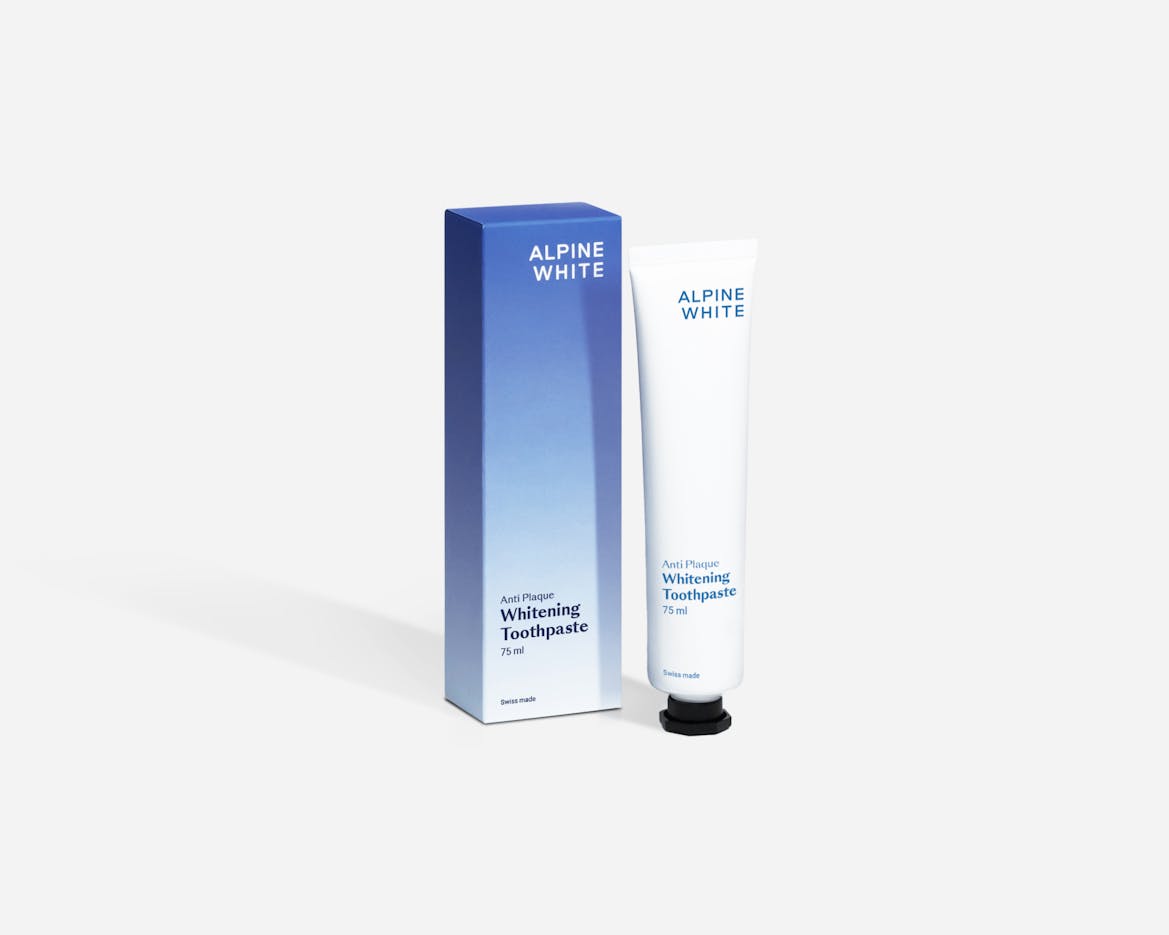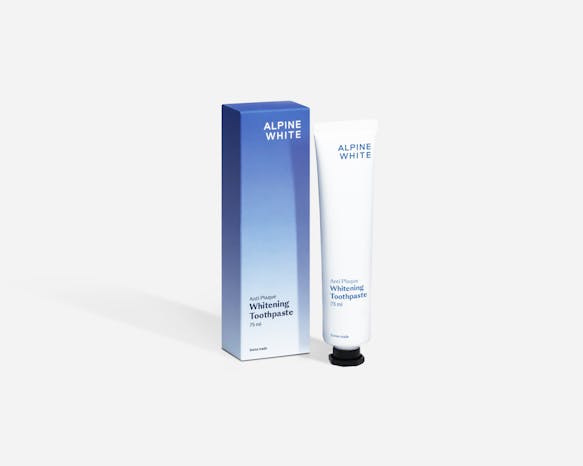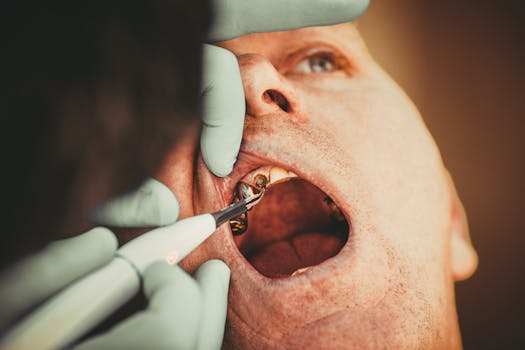Fluorosis - symptoms, cause and treatments
Do you have discolored teeth? Then you may have fluorosis stains. Dental fluorosis is a condition that can be caused by too much fluoride. Although it doesn't usually cause any damage, it can lead to cosmetic problems. In this blog post, we will go over the symptoms, causes and treatment options for fluorosis. Read on to find out more!



What is fluorosis and what are its symptoms?
Fluorosis is a condition caused by excessive fluoride intake during the development of a child's teeth. While it can be beneficial for maintaining dental health, it can be dangerous if taken with a large amount of fluoride. Symptoms of dental fluorosis include white spots and streaks on the teeth, discoloration, increased staining and roughness, holey enamel and even brittleness. Most of these symptoms are purely cosmetic, but still, affect self-esteem as they can lead to brown stains on the teeth. It is important to take precautions and keep fluoride intake low.
While fluorosis can affect both permanent and baby teeth, there are some important differences between the two. In general, fluorosis is more pronounced in permanent teeth than in baby teeth because the enamel is less developed with excessive intake of fluoride. Fluorosis on permanent teeth often shows up as yellow or brown spots on the surface of the tooth, whereas it is more likely to appear as white spots or streaks on deciduous teeth.
What is fluorine?
Fluorine is a chemical element in the periodic table with atomic number 9. It is one of the most abundant elements in nature and can be found in rocks, soil, water, air and even living organisms. Fluorine has been used for centuries as an ingredient in toothpastes and other dental care products to prevent tooth decay. More recently, it has also been added to drinking water supplies or applied directly to the soil as part of dung programmes to increase crop yields and reduce insect infestations during growing cycles. Besides its use in dentistry and agriculture, fluorine is also used in many industrial processes such as nuclear power and aluminium production due to its strong reactivity.
What is fluoride?
Fluoride is a natural mineral found in dental care, such as in toothpaste, mouth rinses or children's toothpaste. In fact, fluoride supplements and treatments are the most commonly recommended preventive measure for adults and children at risk for tooth decay or other oral health problems due to poor hygiene or inadequate dietary habits. But it is also present in other everyday products such as water, food, table salt, some dietary supplements, and even certain fruits and vegetables. Many communities add fluoride to drinking water to help fight tooth decay in children.
Prevention
Fluorosis is a problem that most people are aware of but do not necessarily understand. Brushing and flossing regularly can help prevent dental fluorosis, but it is especially important to ensure that children have access to toothpaste or mouthwash with low fluoride content. To prevent the problem, fluoride levels should be limited through drinking water, fluoride tablets or certain foods.


Effective plaque removal and prevention combined with gentle teeth whitening. Swiss made.
Causes of fluorosis and fluorosis treatment
Dental fluorosis is caused by overexposure to fluoride in the early years of life and is usually clearly visible in the appearance of the teeth. This can damage the enamel, which in turn causes tooth discoloration on the tooth surface and even changes the shape of the teeth. While there is no definitive solution to this problem, there are some treatments and cosmetic dentistry that can improve the appearance of your teeth if you are affected by fluorosis. These range from chemical procedures such as microabrasion and teeth whitening (which whitens the tooth enamel) to restorative procedures such as dental bonding or crowns and veneers. Of course, it is always best to talk to a professional before deciding on a particular treatment option. But it can be very helpful to know what treatment options are available for people with fluorosis.


Gently achieve whiter teeth with our pain-free in-office bleaching. Carried out by our specialised dental staff.
- Naturally white teeth
- Effective tooth whitening without peroxides
- No change in the tooth structure
Cases of fluorosis
Apart from the cosmetic effects of dental fluorosis, the condition can also pose serious health risks. Affected teeth are usually more susceptible to decay and decay because the porous nature of their smooth surfaces means that bacteria, plaque and food particles can get stuck there more easily and cause discoloration. Fluorosis teeth are also sometimes weaker than healthy teeth and are therefore more likely to break off when they come into contact with hard or tough substances. In addition, acute fluorosis can compromise the immune system, making sufferers more susceptible to a range of diseases. Fortunately, these risks can be minimised by regular brushing with fluoride toothpaste, daily flossing, professional dental cleanings and dental examinations.


For a healthy mouth and beautiful teeth, regular professional teeth cleaning is essential. Our specialists detect early signs of caries and prevent them.
- Personalised dental hygiene
- Gum check & caries control
- Painless cleaning with AIRFLOW
Although fluorosis is mainly a cosmetic problem, it can lead to other dental problems if not treated. Fortunately, there are many treatment options to improve the appearance of your teeth if you have fluorosis. If you are concerned about fluoride exposure, come by our Studio for an Oral Health Checkup, Bleaching or Dental hygiene!


Not sure about the health of your mouth? Thanks to our innovative intra-oral camera, we can give you a detailed overview and offer you the best possible individual routine.
- We check your oral health and hygiene
- Checking your teeth for cavities
- Composition of an individual routine



